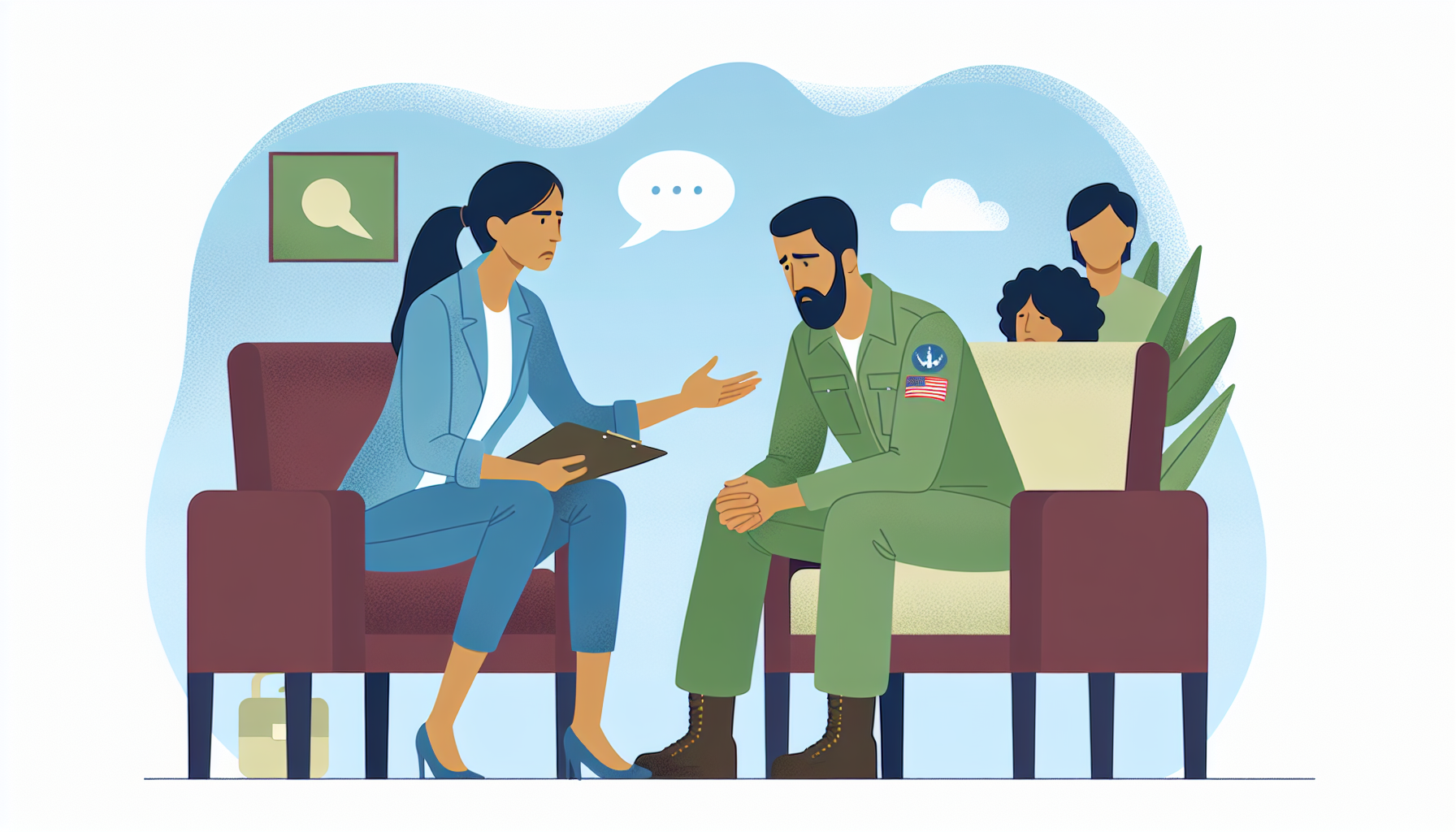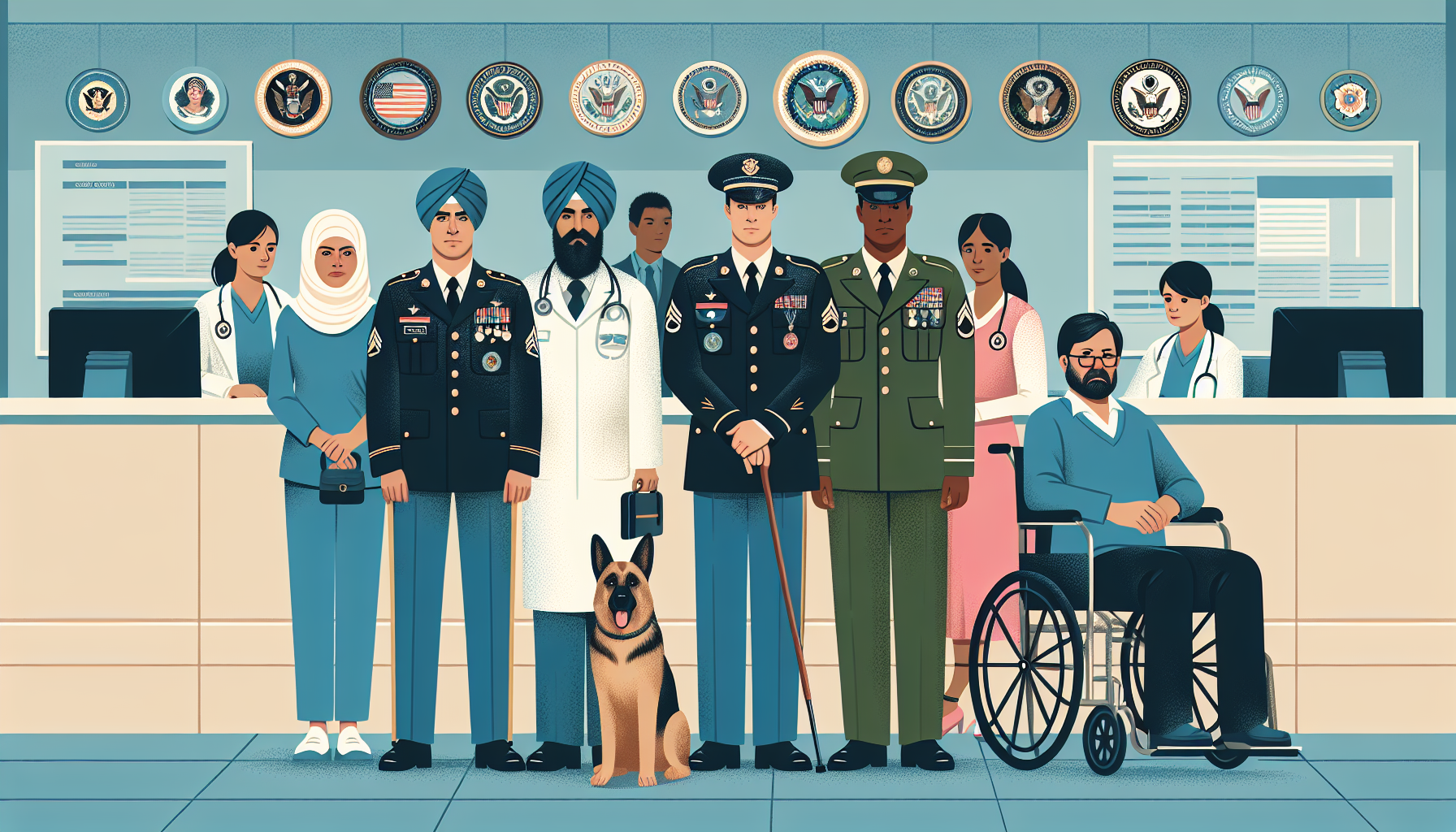Definition
Bilateral Deafness, in the context of VA benefits, refers to the significant hearing loss of an individual in both ears. The VA evaluates the severity of hearing impairment by conducting standardized tests, such as speech recognition and pure tone audiometry. This condition is eligible for disability compensation if it is a result of military service or aggravated due to active duty service.
Key Takeaways
- Bilateral Deafness refers to a significant hearing impairment in both ears, which is considered a disability by the U.S. Department of Veterans Affairs (VA).
- Veterans with bilateral deafness may be eligible for disability benefits and compensation, depending on the severity of their hearing loss and its connection to their military service.
- The VA uses the Speech Recognition in Noise Test (SPRINT) and the Puretone Audiometric Test to determine the level of a veteran’s hearing loss, and subsequently calculates a disability rating to establish the appropriate benefit amount.
Importance
Bilateral deafness is an important term in the context of VA benefits, as it refers to hearing loss in both ears, stemming from service-related injuries or conditions.
This type of disability can significantly impact a veteran’s quality of life, ability to communicate, and overall well-being.
The VA benefits system recognizes the importance of addressing and supporting veterans with bilateral deafness by offering financial compensation, healthcare services, and other resources specifically tailored to their needs.
By acknowledging bilateral deafness as a distinct and significant disability, the VA is better equipped to serve affected veterans and ensure they receive the appropriate support and accommodations for a more comfortable and fulfilling life.
Explanation
Bilateral Deafness, as it relates to VA benefits, is a medical term used to describe a serious hearing impairment affecting both ears, which is often experienced by veterans as a result of exposure to loud noises during their time in service. The purpose of specifically identifying and understanding bilateral deafness is to provide accurate assessment and support for veterans who struggle with this disability as a consequence of their military service.
This condition can drastically impact the quality of life for veterans, making it crucial for them to receive adequate care and assistance through the Department of Veterans Affairs (VA).The VA benefits system recognizes bilateral deafness as a service-connected disability and provides appropriate compensation based on the severity of the hearing loss. These benefits not only ensure that the affected veterans receive necessary medical support and access to hearing aids, but also provide financial support compensating for the diminished ability to perform activities of daily living and work.
Furthermore, the VA also offers vocational rehabilitation services to help veterans with bilateral deafness gain meaningful employment or retrain for alternate careers. By tailoring benefits to address the specific challenges brought on by bilateral deafness, the VA is committed to improving the well-being of veterans and facilitating their reintegration into civilian life.
Examples of Bilateral Deafness
The term “Bilateral Deafness” in the context of VA Benefits refers to hearing loss that affects both ears. Veterans with bilateral deafness may be eligible for disability compensation depending on the severity of the hearing loss and its impact on daily life. Here are three real-world examples of bilateral deafness in veterans:
A veteran who served as a machine gunner during their military service may have experienced prolonged exposure to loud gunfire, resulting in permanent bilateral deafness. This veteran may qualify for VA disability benefits due to service-related bilateral deafness.
A veteran who was exposed to loud explosions during their military service, such as from improvised explosive devices (IEDs) or mortar fire, may have developed bilateral deafness as a result. This veteran may be eligible for VA benefits related to their hearing loss.
An Air Force veteran who worked on the flight line with exposure to loud jet engines for an extended period may have developed bilateral deafness over time. This veteran could apply for VA disability benefits due to their service-connected hearing loss.
FAQ: Bilateral Deafness VA Benefits
What is bilateral deafness?
Bilateral deafness refers to the condition in which an individual experiences significant hearing loss in both ears. In the context of VA benefits, this condition is considered a disability if it affects the individual’s ability to perform daily tasks or maintain employment.
How does the VA assess bilateral deafness?
The VA assesses bilateral deafness using the Maryland CNC Test, which measures speech recognition and pure-tone audiometry. The results are examined, and the severity of the disability is assigned a percentage rating, which in turn determines the disability compensation the individual is entitled to.
Am I eligible for compensation for the bilateral deafness?
To be eligible for compensation for bilateral deafness, you must be a veteran of the United States Armed Forces who suffers from significant hearing loss in both ears. You must also be able to prove that your hearing loss is service-related or has worsened during your time in service.
How do I apply for VA benefits for bilateral deafness?
To apply for VA benefits for bilateral deafness, you must submit a VA Form 21-526ez, along with any supporting documentation, such as service records and medical evaluations. You can submit this form online through the VA website or at your local VA office.
How is disability compensation determined for bilateral deafness?
Disability compensation for bilateral deafness is determined based on the severity rating assigned by the VA. The higher the percentage rating, the more significant the disability, and the more compensation you will receive. The VA uses a Disability Benefits Rate Table to assist in calculating the compensation amount.
Can I receive additional benefits if I have dependents?
Yes, if you are receiving VA disability compensation for bilateral deafness and have a rating of 30% or higher, you may be eligible for additional benefits for your dependents. This includes spouses, children, and dependent parents. To apply for these benefits, you must submit a VA Form 21-686c.
Will my VA benefits for bilateral deafness affect other benefits I am receiving?
In some cases, receiving VA disability compensation for bilateral deafness could affect other benefits you are currently receiving. It is advisable to consult with a VA representative to understand how your individual circumstances may impact your VA benefits and any other benefits you receive.
Related VA Benefit Terms
- VA Disability Compensation
- Hearing Loss Benefits
- Audiology Evaluations
- Assistive Listening Devices
- Veteran Healthcare Services
Sources for More Information
- U.S. Department of Veterans Affairs
- Veterans Benefits Administration
- Hearing Loss Association of America
- National Institute on Deafness and Other Communication Disorders
 Benefits.com Advisors
Benefits.com Advisors
With expertise spanning local, state, and federal benefit programs, our team is dedicated to guiding individuals towards the perfect program tailored to their unique circumstances.
Rise to the top with Peak Benefits!
Join our Peak Benefits Newsletter for the latest news, resources, and offers on all things government benefits.






























